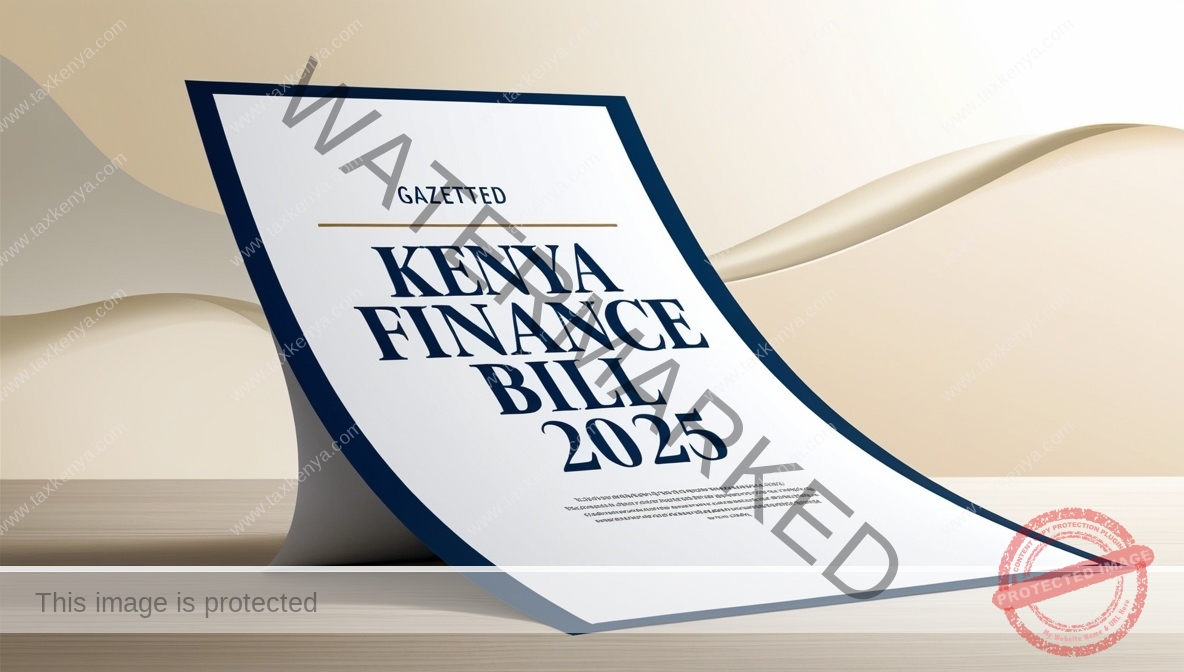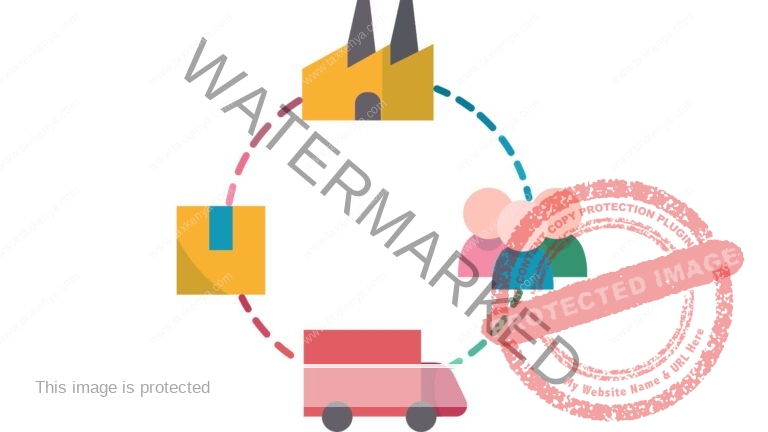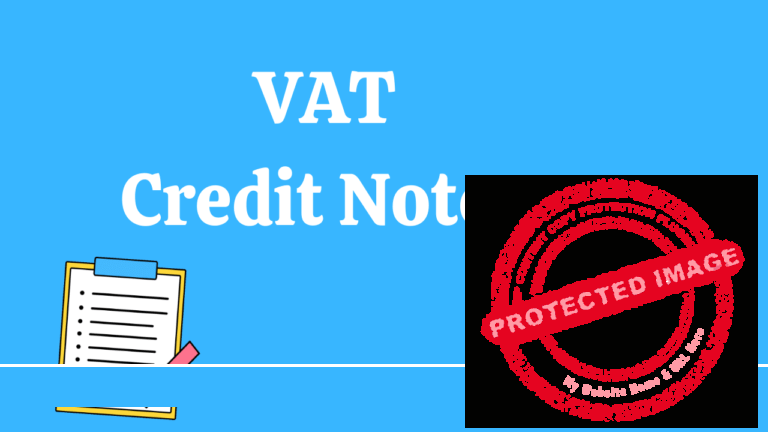Based on the sources provided, the Kenya Finance Bill, 2025, proposes amendments to various laws relating to taxes and duties. The Cabinet Secretary submitted the Bill for the National Treasury and Economic Planning and formulated proposals regarding revenue-raising measures, including liability to, and collection of taxes.
The proposed significant changes include amendments to the following Acts:
- The Income Tax Act (Cap. 470).
- The Value Added Tax Act (Cap. 476).
- The Excise Duty Act (Cap. 472).
- The Tax Procedures Act (Cap. 469B).
- The Miscellaneous Fees and Levies Act (Cap. 469C).
- The Stamp Duty Act (Cap. 480).
Here are some of the significant proposed changes highlighted in the excerpts:
Income Tax Act (Cap. 470)
- Definitions: Amendments are proposed to definitions such as “debenture,” “individual retirement fund,” “royalty,” “compensating tax,” “Tribunal,” “venture company,” and “related person.” The definition of “spouse” is proposed to be deleted and substituted with “husband.” The definition of “gross investment receipts” is proposed to be deleted. New definitions for “digital lender” and “digital marketplace” are introduced under the Excise Duty Act, which are also relevant.
New Taxes:
Significant Economic Presence Tax:
A tax is proposed to be known as the significant economic presence tax, payable by a non-resident person whose income from the provision of services is derived from or accrues in Kenya through a business carried out over a digital marketplace. The taxable profit for computing this tax shall be ten percent of the gross turnover. This tax shall not apply to a non-resident person who offers services through a permanent establishment in Kenya or to income chargeable under specific sections.
Minimum Top-Up Tax:
A minimum top-up tax shall be payable by a covered person where the combined effective tax rate regarding that person for a year of income is less than fifteen percent. The amount payable is the difference between fifteen percent and the combined effective tax rate, multiplied by the excess profit of the covered person.
This tax shall not apply to certain entities, including public entities not engaged in business, persons whose income is exempt under specific provisions, pension funds, real estate investment vehicles, non-operating investment holding companies, investment funds, sovereign wealth funds, or intergovernmental or supranational organisations.
Advance Pricing Agreements:
The Commissioner may enter an advance pricing agreement with a person who undertakes a transaction contemplated under specific sections. The amount expected to accrue as if the business had been conducted at arm’s length shall be determined according to the agreement. These agreements are valid for a period not exceeding five consecutive years. The commissioner can declare the agreement void if entered into through misrepresentation of facts.
Income and Deductions:
a. Proposed amendments relate to income from employment, including benefits and allowances; income from pensions; and income from management or professional fees, royalties, interest, and rents.
b. New deductions allowed include expenditures incurred by a person carrying on business in payment of the Affordable Housing Levy.
c. Deductions not allowed explicitly include expenditure or loss where invoices are not generated from an electronic tax invoice management system, with exceptions. Also disallowed are expenditures incurred by a person in maintaining themselves, their family, or an establishment for personal/domestic purposes. Further, entertainment expenses (with exceptions); vacation trip expenses (with exceptions); educational fees of dependents/relatives (with exceptions); and expenditure/loss recoverable under insurance, contract, or indemnity are not allowed.
Gross interest paid or payable to a nonresident exceeding thirty percent of earnings before interest, taxes, depreciation, and amortization is not deductible, with specific exceptions.
Withholding Tax:
Changes are proposed regarding withholding tax on various types of income, including payments for services, royalties, interest, dividends, pensions, winnings, sales promotion, advertising, and transportation of goods. The rates vary depending on the type of income and whether the recipient is resident or non-resident. Specific provisions are made for withholding tax on rental income and to appoint persons required to deduct tax.
Self-Assessment and Penalties:
Every company is liable to tax under this act and must include with the self-assessment return any compensating tax. Every individual chargeable to tax shall furnish a self-assessment return by the last day of the sixth month following the end of the year of income. Every person other than an individual shall furnish a self-assessment return by the last day of the sixth month following the end of the year of income. Penalties for late submission or failure to submit returns are specified.
Value Added Tax Act (Cap. 476)
a. Electronic Tax Invoice: A new definition of “tax invoice” includes an electronic tax invoice issued in accordance with the Tax Procedures Act. Provisions regarding the issuance and requirements of electronic tax invoices are detailed.
b. Input Tax: Amendments are made to the rules for deducting input tax, including documentation requirements. The commissioner may allow a claim for refund of excess tax within twenty-four months. Specific rules apply to the deduction of input tax on passenger cars or minibuses and their repair/maintenance.
c. Exempt and Zero-Rated Supplies: Changes are made to the First Schedule (Exempt Supplies) and the Second Schedule (Zero-Rated Supplies). This includes additions and deletions of various goods and services. A new section specifies liability to pay tax on exempt or zero-rated goods or services disposed of or used inconsistently with the purpose for which they were supplied.
Excise Duty Act (Cap. 472)
a. Definitions: New definitions for “digital lender” and “digital marketplace” are introduced.
b. Imposition and Place of Supply: Excise duty is to be charged on excisable goods manufactured in Kenya by a licensed manufacturer, excisable services supplied in Kenya by a licensed person, excisable goods imported into Kenya, or excisable services offered in Kenya by a non-resident person through a digital platform.
The supply of excisable services is deemed to be made in Kenya if the services are supplied from the place of business of the supplier in Kenya or if the supplier is not in Kenya but the recipient is a registered or unregistered person.
c. License Issue: Conditions for the Commissioner to refuse to issue or to suspend a license are specified, including conviction of an offense, bankruptcy, or failure to keep proper records.
d. Rates of Excise Duty: Amendments are proposed to the rates of excise duty on various goods listed in the First Schedule.
Tax Procedures Act (Cap. 469B)
a. Electronic Tax System and Invoices: The Commissioner may establish an electronic system for issuing and recording electronic tax invoices. Persons carrying on business shall issue electronic tax invoices and maintain records in this system. The commissioner may require persons to integrate into the electronic tax system and submit electronic documents.
b. Amendment of Assessments: Procedures for the Commissioner to amend assessments are outlined. A taxpayer who makes a self-assessment may apply to the Commissioner to amend it.
c. Security on Unpaid Tax: If a taxpayer fails to pay tax by the due date, the Commissioner may notify the Registrar to register the property as security for the unpaid tax.
d. VAT Withholding Agent: The Commissioner may appoint a person to withhold two percent of the taxable value on purchasing taxable supplies, with exceptions.
e. Objection to Tax Decision: Procedures for lodging objections to tax decisions are detailed.
f. Data Management and Reporting: The Commissioner may establish a system for the submission of electronic documents including detailed transactional data.
g. Penalties: Various penalties are specified for failure to deduct or withhold tax, late submission and failure to submit returns, and non-compliance with notices. The Cabinet Secretary may waive penalties or interest in certain circumstances.
Miscellaneous Fees and Levies Act (Cap. 469C)
a. The provisions of the Tax Procedures Act apply for the purposes of applying for refunds, ascertainment and repayment of fees and levies, and determination of penalties and interest.
b. Changes are proposed to the Second Schedule (Goods Exempt from Import Declaration Fee) and Third Schedule (Export and Investment Promotion Levy).
Stamp Duty Act (Cap. 480)
An exemption from stamp duty is proposed for the transfer of property by a company to its shareholders as part of an internal reorganization, provided the property is transferred in proportion to their shareholding or the property consists of shares in a subsidiary transferred as part of the reorganization.
Further exemptions are listed in the First Schedule, including certain conveyances, transfers of shares/stocks, instruments relating to export processing zone licenses, and the purchase of a house by a first-time homeowner under affordable housing schemes.
These excerpts from the Finance Bill, 2025, show a broad range of proposed changes affecting various aspects of taxation in Kenya, from income tax and VAT to excise duty, tax procedures, and miscellaneous fees and levies.
Gazetted Kenya Finance Bill 2025 Videos
a. Download Bill – HERE
b. Listen to video discussions on the proposals contained in the Gazetted Kenya Finance Bill 2025
1. Part II Income Tax – Access HERE
2. Part III Value Added Tax – Access HERE
3. Part IV Excise Duty – Access HERE
4. Part VII Tax Procedures – Access HERE
5. Part VI Miscellaneous Fees and Levies – Access HERE




